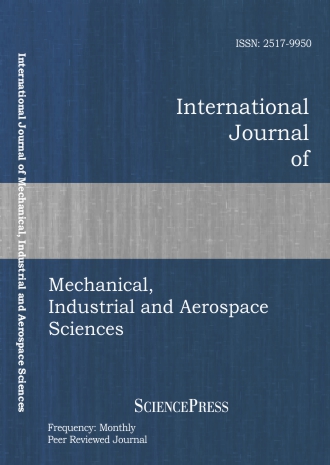
Scholarly
Volume:4, Issue: 10, 2010 Page No: 1115 - 1120
International Journal of Mechanical, Industrial and Aerospace Sciences
ISSN: 2517-9950
2837 Downloads
Optimum Design of Pressure Vessel Subjected to Autofrettage Process
The effect of autofrettage process in strain hardened thick-walled pressure vessels has been investigated theoretically by finite element modeling. Equivalent von Mises stress is used as yield criterion to evaluate the optimum autofrettage pressure and the optimum radius of elastic-plastic junction. It has been observed that the optimum autofrettage pressure increases along with the working pressure. For two different working pressures, the effect of the ratio of outer to inner radius (b/a=k) value on the optimum autofrettage pressure is also noticed. The Optimum autofrettage pressure solely depends on K value rather than on the inner or outer radius. Furthermore, percentage reduction of von Mises stresses is compared for different working pressures and different k values. Maximum von Mises stress developed at different autofrettage pressure is equated for elastic perfectly plastic and elastic-plastic material with different slope of strain hardening segment. Cylinder material having higher slope of strain hardening segment provides better benedictions in the autofrettage process.
References:
[1] T.Z Blazinski, Applied elasto-plasticity of solids, Hong-Kong: